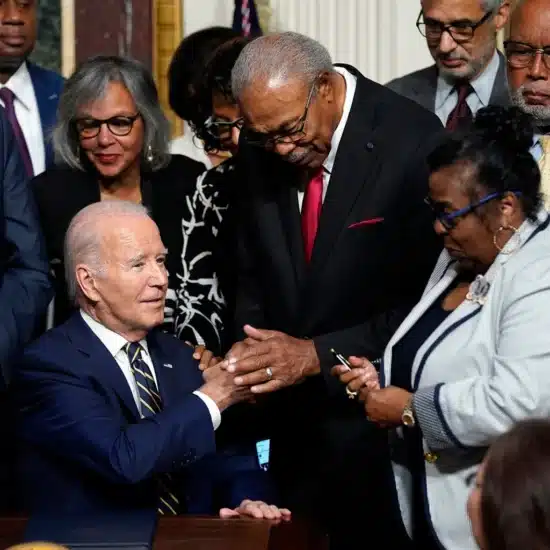RICHMOND, Va. — Friends and family members of Cecil Edwin Sherman filled the spacious sanctuary of River Road Church, Baptist, in Richmond, Va., April 20 to celebrate his life in the first of two scheduled memorial services.
Michael Clingenpeel, pastor of the church, presided over a service that included much singing, much laughter and a few tears. Speakers included Jim Slatton, former pastor of River Road Church; Tom Graves, former president of Baptist Theological Seminary at Richmond, where Sherman taught in recent years; Sherman’s grandson, Nathaniel Brown; and Sherman’s brother, Bill.
Slatton recalled from days at Southwestern Baptist Theological Seminary a sermon Sherman preached at the Ft Worth, Texas, school. “I remember the ripple that was caused at the seminary by Cecil’s famous rot — R-O-T — sermon in which he exposed some of the rot common to the common wisdom of the clergy and particularly the seminary clergy. It was one of the most popular and demanding sermons ever preached at Southwestern.”
Remembering Sherman’s years as a pastor, Graves extolled his effectiveness in the pastoral role.
Brown recalled his grandfather’s sometimes shocking honesty, his high standards and his humility. “I never knew how significant he was in Baptist circles,” said Brown. Not until he read about his grandfather’s life did he understand the courageous stands he had taken on issues and the influence he had brought to bear on principles dearly held by Baptists.
Bill Sherman, pastor of First Baptist Church in Fairview, Tenn., provided the meditation for the occasion. “We seem to think that our loved ones belong to us, but they are only loaned to us. We found that out last Saturday morning,” referring to the time of his brother’s death.
“I was always proud that he was my brother, for he always told the truth,” Sherman continued. “And he always stood his ground” — on the race issue, on the women’s issue and on issues of Baptist principles.
For many years the Sherman brothers spoke almost every night by phone. In addition to keeping up with each other, it allowed them to share their favorite jokes, two of which Bill shared because his brother would have expected it.
One of Cecil’s ambitions was to live long enough to finish the manuscript of a new book he was writing for pastors and church leaders. With his voice husky with emotion, Bill shared that Cecil completed the book and sent it to the printer exactly one week before he died. It is expected to be released by Smyth & Helwys in June.
Though illustrated by different scenarios from Sherman’s life, each of the speakers referred to the integrity that was a hallmark of the man. Several mentioned his commitment to equal rights when he marched in the streets of Asheville, N.C., where he was pastor of First Baptist Church, following the death of Martin Luther King Jr. As a consequence of his courageous stand, he received death threats and open condemnation from some of his fellow pastors.
Also common to each speaker’s comments was Sherman’s stand for time-honored and biblically-based Baptist principles which he believed to be largely abandoned by those who took control of the Southern Baptist Convention during the days referred to by some as the takeover and by others as the conservative resurgence.
Still another common thread woven into each speaker’s remarks was the tenderness with which he cared for his wife, Dot. Her 10-year illness prior to her death 20 months ago required a great deal of effort and sacrifice from Sherman, but he eagerly and lovingly tended to his wife’s needs, they reported. Her death came one month after Sherman’s discovery that he suffered from acute myeloid leukemia — a disease which, with expert medical care and abiding faith, he overcame.
Sherman, who served as the first coordinator of the Cooperative Baptist Fellowship, was also remembered for his leadership in helping form that organization, which was initially credited with providing places of service for Baptists disenfranchised by their own denomination.
When the service had ended, one mourner was overheard to say, “I feel like I have worshiped!” It was a universally-held sentiment.
A second memorial service is scheduled for 2 p.m. Thursday at First Baptist Church in Asheville.
Jim White is editor of the Religious Herald.



